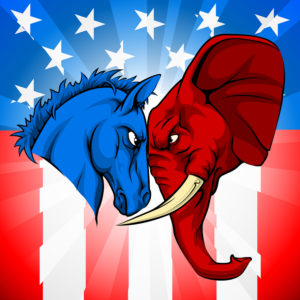No American presidential election in recent years was watched so closely as the one that concluded on Tuesday after considerably more than half of eligible voters had already cast their ballots by mail.
It wasn’t just the Americans voting in record numbers who were mesmerized by the whole process. The rest of the world was watching too as if it were some great game like the Superbowl, the annual gladiatorial contest that’s almost as popular globally as it is across the U.S.
In a sense the great show was not just about who would lead a country divided as rarely before since the Civil War between the northern and southern states.
It was also an exercise in democracy, a supercharged example of how a democratic system functions or fails in a society that purports to place high priority on freedom of speech, of the press, of the right to smear a person with demonstrable falsehoods, to say just about anything short of libel.
In this campaign, more than any other in recent years, the rules of libel were bent and stretched as activists and protesters on all sides dredged up tales from the candidates’ pasts and then embellished them with hyperbole and falsehoods that often made it impossible to separate fact from fiction.
The media harangues, the self-righteous wrath of east and west coast liberals, the preaching of evangelists, the litany of rights and wrongs on websites with political affiliations, revealed the schisms in American society.
They came after months of recriminations, some quite violent, had already torn the country apart. And all the mayhem was on top of the COVID-19 pandemic in which the statistics show Americans have suffered more than the people of any other country.
Was the whole election process a great example of democracy at work or the prelude of still more extremism, of an ever deepening right-left split with the danger of a second civil war? No other country would tolerate the same level of open mudslinging, verbal assaults on personalities, lies and distortions.
The U.S. is close to the boiling point.
A lot of commentators see the great debate as revealing all that’s wrong about American life. On the plus side, though, it’s also setting an example for free speech.
While the stars from the Washington Post, New York Times, The New Yorker and Foreign Affairs were aligned, blasting away at Trump as evil incarnate, crowds were cheering Trump at campaign stops. As COVID spread, he played on intuitive racism, of hatred of an educated elite and leftist-led violence, of Black Lives Matter, while promising new life for factories, shops and farms.
This brand of conservatism, however, comes with a familiar downside. It didn’t just begin with the killing of George Floyd in May by a Minneapolis police officer.
There have been numerous police assaults on Blacks before and since, some of which have resulted in deaths, as well as a violent, sometimes deadly backlash against protests among hard-core rightists.
It’s impossible to rationalize the killings, the wanton destruction of life and property, the answer to which, far from idiot calls for defunding the police, is police reform and a heightened sense of awareness of what’s going on and what to do about it.
That should be a top priority of the next administration along with concerns about dealing with China or North Korea’s nukes.
Comparisons with Korea’s Candlelight Revolution come to mind four years after hundreds of thousands were taking to the streets of Seoul and other Korean cities calling for the impeachment, ouster and jailing of the president, Park Geun-hye.
The same forces that overthrew her also rose up against her predecessor, the former Hyundai Motor chairman, Lee Myung-bak, who’s now back in prison for conniving with a brother on embezzlement from an auto parts company while accepting defense funds from Samsung.
It would be premature, though, to gloat or mourn the outcomes in either the U.S. or Korea
Discontent in both countries carries the seeds of much worse. The fact that both the conservative presidents who governed Korea for a decade before the election of President Moon Jae-in are in jail is disturbing.
That’s not to say they were not guilty as charged, just that their imprisonment for lengthy terms is sure to inspire revenge — the same sentiment that’s ominous for democracy anywhere, in Korea as well as the U.S.

